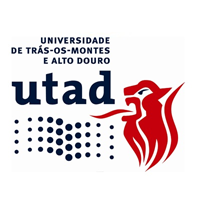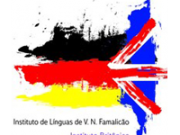Descrição
Idade Mínima: 0
Idade Máxima: 0
Situação:
Habilitações Mínimas:
Habilitações Específicas:
According to the proposed themes, at the end of the course, the trainees must be able to,:
– Oral and written command of Portuguese as a vehicular language;
– Development of progressive personal autonomy in the school and social scope ;
– Effective integration of students in the national curriculum and at any level or modality of teaching;
-Promotion of educational success and development of active citizenship
LISTENING:
The student will be able to: recognize familiar words and very basic phrases concerning himself/herself, his/her family and immediate concrete surroundings when people speak slowly and clearly; understand everyday expressions dealing with simple and concrete everyday needs in clear, slow and repeated speech; follow speech which is very slow and carefully articulated, with long pauses for him/her to get the meaning; understand questions and instructions and follow short, simple directions; and understand numbers, prices and times.
READING:
The student will be able to: understand the general idea of simple informational texts and short simple descriptions, especially if they contain pictures which help to explain the text; understand very short, simple texts, putting together familiar names, words and basic phrases, by for example rereading parts of the text; follow short, simple written instructions, especially if they contain pictures; recognize familiar names, words and very simple phrases on simple notices in the most common everyday situations; and understand short, simple messages, e.g. on postcards.
SPEAKING:
The student will be able to: interact in a simple way, provided the other person is prepared to repeat or rephrase things at a slower rate of speech and help him/her formulate what he/she is trying to say; ask and answer simple questions in areas of immediate need or on very familiar topics. The student will be able to: use simple phrases and sentences to describe where he/she lives and people he/she knows.
WRITING:
The student will be able to: write simple notes to friends and relatives; describe where he/she lives; fill in forms with personal details, for example entering his/her name, nationality and address on a hotel registration form; write simple isolated phrases and sentences; write a short simple postcard; and write short letters and messages with the help of a dictionary.
SYLLABUS
Sociolinguistic, Cultural and Communicational Competences:
Advise
Analyze the difficulties of adapting to a new country or culture
Argue and defend viewpoints
Defining appropriate professional profiles
Describe a city
Develop listening comprehension
Expressing pleasure or displeasure
Facing an interview
Follow a map
Indicate directions
Make and answer inquiries on the street
Plan a party
Present professional features
Recognize instructions
Report past and present events
Send invitations
Speak of personal experiences
Speak of the usual actions in the past
Speaking of professional experience, objectives and concerns
Talking about past events
Talking of popular parties and traditions
Use appropriate polite expressions
Write a letter
Lexical Areas / Vocabulary:
Actions related to the past
Advertising
An interview
Biographical Stories
Bullfighting
Curriculum Vitae
Directions
Events
Festivals and traditions
Formulas of politeness
Habits
Household items
Inquiries
Instructions
Invitations
Life Experiences
Opinions
Problems of adaptation to a new country or culture
Professional characteristics
Professional Profile
Travels
Usual actions in the past
Grammar:
“andar a” + infinitive
“Costumar” + infinitive
“haver de” + Infinitive
Adverbs in “-mente”
Adverbs of time: “antigamente” and “antes”
Customary actions in the past
Direct object pronouns (with exceptions)
Expressions of time: “já”, “ainda não”, “nunca”…
Imperative (regular verbs)
Indefinite pronouns and adjectives
Paronym words
Passivating Particle: “se”
Imperfect Tense: regular verbs in –ar, -er and –ir and some irregular verbs
Prepositions + Pronouns
Relative Pronouns
Perfect tense (PPS): regular verbs in –ar, -er and -ir
Perfect tense (PPS): some irregular verbs “ser”, “estar”, “ter”, “haver”, “trazer”, “fazer”, “dizer”, “ver”, “ir”, “vir”, “pôr”, “dar”, “conseguir”, “saber”, “poder”,“querer”…
The students will integrate the work of the following skills: understanding (listening and reading), speaking (spoken interaction and spoken production) and writing. The assessment will be substantiated in accordance with the provisions of the Common European Framework (CEFR) of reference to the level A1 and the Pedagogical Rules of UTAD, integrating the following components:
– Formative assessment (weekly) to measure and monitor the gradual progress of the students.
– Periodic summative evaluation (formal), which includes the skills listed above and can take the form of (oral and written) tests and various records, among other factors considered pertinent;
– Self-assessment questionnaires (during the lessons).
Certificate of Assessment



